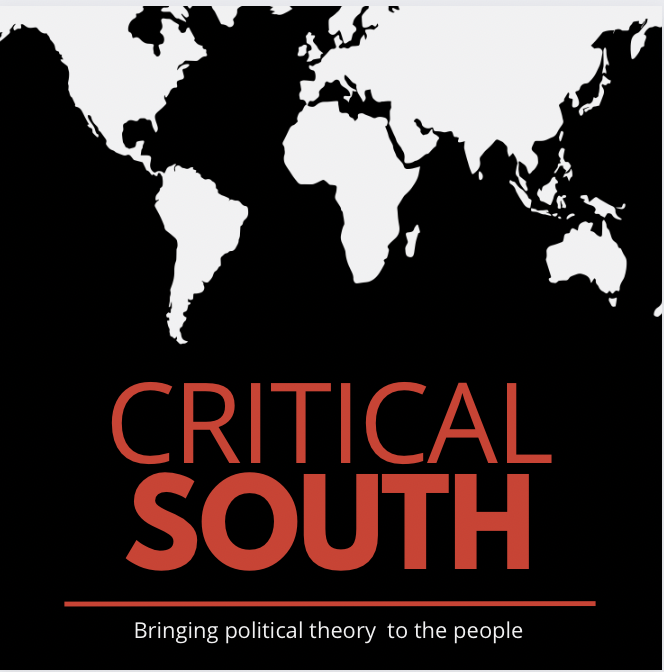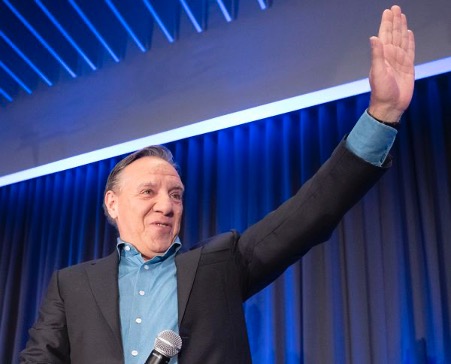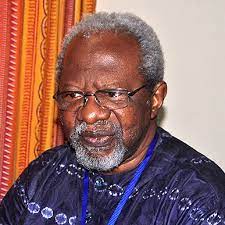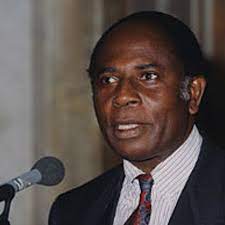 Terrell Carver is Professor of Political Theory at the University of Bristol, UK. He has published widely on sex, gender, sexuality and masculinity/ies, and on Marx, Engels and Marxisms. His latest books are Marx in the ‘Classic Thinkers’ series for Polity Press (2018), and Masculinities, Gender and International Relations for Bristol University Press (2022).
Terrell Carver is Professor of Political Theory at the University of Bristol, UK. He has published widely on sex, gender, sexuality and masculinity/ies, and on Marx, Engels and Marxisms. His latest books are Marx in the ‘Classic Thinkers’ series for Polity Press (2018), and Masculinities, Gender and International Relations for Bristol University Press (2022).
The following ‘Epilogue’ was written as an English-language postscript to a truly remarkable book in Spanish: ¡Hasta mi mamá! by Monserrat Sepúlveda. The book documents a unique feminist engagement: one man volunteers to listen to, and at the end respond to, ‘the women in his life’ who ‘tell it like it is’ about the harassment, abuse, violence, indignities, subordinations and patronising put-downs they have experienced in their lives.
Getting a man to listen to testimony from those he knows and loves breaks all the boundaries that hetero-patriarchalist-masculinity engrains in men, however they ‘personally’ feel about it. This man, after such harrowing testimony, has to think what to say in response.
The publisher decided to modify the structure of the book so as not to include an epilogue at all, so a Spanish-version of the text below was not prepared. The book will be published by Libros del Amanecer in Santiago, Chile, in 2023.
Epilogue
This book begins in just the right place: with a man listening to women. But note that Alejandro has agreed to this, so he had a choice, and opted in. The default option – for men – is not to bother, or rather, why would I? Listening to men is one thing, listening to women is quite another. This whole situation is highly unusual, quite apart from the topic.
This situation is unusual, not simply because ‘the floor’ here belongs to women, but because men – or at least the one – are meant to listen, and to listen in a certain way. They are meant to take what’s said seriously, to empathize, and to think about it, to change their thinking, or at least consider it. They are used to this from other men, and with regard to the kinds of subjects that normally come up in that ‘monosexual’ context. But this situation is quite different.
It’s all through the looking glass in this book, plunging men – or at least one – into the opposite of a wonderland. Suddenly a lot of uncomfortable ideas become weirdly real and so much clearer. On this side of the looking glass, gender isn’t just a binary, and it doesn’t locate us unequally. Gender is already a hierarchy, and it locates us in a relation of domination and subordination. What is unequal here isn’t women with men. It’s an inequality of power within which subordinates cannot be leveled up. In order for that to happen, dominators must be leveled down. So rather than a wonderland, for men this reversal is an inversion, the power-hierarchy turned upside down. What would that be like?
Being a man subordinated to other men isn’t unusual. It’s the way that masculinity works: ‘nested’ hierarchies of winners and losers, engaged in competitive struggles to rise to the top, necessarily pushing others down a rung, down a peg or two … they are losers, so there can be winners. It’s easier to see inequalities of power in that single-gender, masculinised and masculinising, context. It’s far more difficult, and indeed contradictory, to understand gender as a hierarchy of domination (by men) and subordination (for women), yet somehow an equalizable situation. If, indeed, very many men are seriously invested in that idea in the first place.
If we subtracted the gender-binary from the power-structures of society, and considered ‘human’ as the operative category, then equalizing power-relations among humans might start to make sense. Or rather we might start to consider what power-flows among humans construct the human condition, how we feel about that, and indeed what is to be done. There are all different kinds of humans, or rather we understand humanity through differences that are constantly evolving. And through those differences some people construct flows of power at the expense of others. In this push-pull situation a concept of equilibrium probably makes more sense than one of equality. Looking back through time, and still having regard to the present, it is evident – to feminists anyway – that the equilibrium in human power-relations has settled in a very skewed way, and that pushing back on this is very hard work.
The opening scenario for this book – a man listening to women and taking them seriously – is at odds with some of the language through which the interlocutors within the text try to make sense of the power-dynamics that are the issue. That kind of misapprehension is not an accident. The gender-language here comes from the United Nations, international tribunals, academic agencies, commonsense and real life – all of which is dominated by men in their ‘nested hierarchies’. In those hierarchies, organizations merge with structures, and structures merge with masculinity/ies. Or rather those structures constitute the instructive scripts, and the disciplinary practices, through which the binary domination of masculinity over femininity, men over women, is made to ‘make sense’. Or else.
What sense, then, does ‘gender-based violence’ actually make? Violence has commonsense referents, albeit with less well defined ‘grey areas’, such as psychological and structural attributions. Gender is most often, in contemporary discourse, a reference to, or even a synonym for, women and things associated with them, stereotypically. How women actually are, as individuals or even as a group, doesn’t figure against that stereotypical ‘wisdom’. Or rather that ‘wisdom’ tells some humans what to do, how to be, which box to tick … and take the consequences. Gender, gendered and gendering are also flags for feminist thinking about what men have called ‘the woman question’. This book, and a few others, have turned the tables on that.
Can ‘gender-based violence’, then, be women’s violence against women? Obviously not, or rather that isn’t what we’re talking about here. What we’re talking about here is men’s violence against women. The narrative memoirs collected in this dialogical book are an important contribution to the documentation that has only recently been allowed. Until recently there was no need to censor or prohibit these accounts – because they weren’t of much interest to readers, academics, publishers, who were mostly men. As a group, men had, and still very much have, far more money, power and influence than women, notable women notwithstanding. And notice how few of them there are, and how variable is the rate of change. We don’t often see these harrowing accounts, because men find it easy to overlook women and what they say, to be uninterested in taking women seriously, to be quite happy with women’s subordination and marginalization. Men are used to the world that way.
Why then does ‘gender-based violence’ (GBV) take center-stage over ‘violence against women’ (VAW)? Note that even with VAW we’re still not naming men. Obviously men don’t want that kind of publicity as a group, and from that perspective, a few ‘bad apples’, ‘bad hats’ and ‘bad guys’ are neither here nor there. Wash out the stain and it’s all squeaky clearn.Even if secretly ‘bad boys’ are admired, sensationalized, fetishized and fantasized.
‘Gender-based violence’ is such an interesting locution because it is so contradictory. If gender usually references women, how then can the same word also reference men? Could it possibly be applied to men’s violence against men? Discursively, for men, the solution is to expunge the apparent contradiction – what’s a woman can’t be a man – and to locate the violence, not in women, which is barely thinkable, but in something other than men.
Anyway, if and when there is women’s violence against women, how much of a problem is that – for men? As a matter of empirical and unmistakable fact, men are far more violent personally, and have far more chances to make far more violence, than women. All of these structures are dominated by men, even if – under pressure – they admit women to the masculinizing processes that legitimize the production, distribution, exchange and consumption of the means through which violence takes place. And, by the way, this includes bare-knuckle assault.
In both GBV and VAW men’s violence against women disappears into an abstraction ‘gender’, where evidently it is ‘based’. That paradoxical ‘grounding’ of violence in an airy abstraction really does the trick. The violence against women under consideration here can’t really be about men – it must be about something abstract, something immaterial, something structural, some agency that you can’t really see. The testimony in this book definitely suggests otherwise, however, and one hopes that more than one man is listening to the voices in the text, and taking women more seriously – anywhere everywhere – as a result.
Anyway the abstraction here that is really relevant isn’t actually mentioned. It is an unnamed, unreferenced, sacred and sacrosanct, visible-in-plain sight reality – heterosexuality. Heterosexuality is what makes sense of gender as a binary and as a hierarchy – as much as it does. The dialectic of desire, the political economy of ‘opposite sex’ relationships, the rituals of birth, marriage and kinship – notwithstanding same-sex variations on those themes – provide a matrix of intelligibility through which the important things in life are promulgated, regulated, celebrated, recorded, memorialized and commemorated. Women experience all these power-plays rather more viscerally than men, or if not, they are commonly made to – by men. It’s men who control the choices that they allow women to have. And it’s women who, over the years and rather more recently, have had some successes in pushing back the power-hierarchy, and taking back control, or anyway for some that’s the idea. To do that they have to confront men. And that is not without risks.
What this book does is to give readers experiential detail that men find it easy to be incurious about, thus to ignore, and that seldom comes out in public in the written word as directly as it does here. But readers are going to be confronted with a challenge. Where there is domination there is violence, because violence is the terror through which subordination can be assured. Or rather, since subordination is fragile, a terrorizing program of random and unpredictable violence is constantly required to keep it going. It is that kind of terrorism that is documented in this book.
Suppose that heterosexuality made sense without masculine domination and feminine subordination. What sense, would the words ‘men’ and ‘women’ then make? How would eroticism and desire work without that particular power-differential? Or rather, what would have to be expunged from the current matrices of intelligibility for a non-violent, non-dominating, truly egalitarian sexuality to make sense? The first thing that would have to go would be the ambiguity-creating, and male-exonerating, locutions of ‘gender’ through which the realities of male power – over females and over each other in ‘nested hierarchies’ – are made to disappear. Gender has a proud history as a foundational concept for feminist struggle. But it can also be a useful device for creating the fog of war.
‘Nested hierarchies’ among men and masculinized individuals are important because they are structures of complicity, as well as aggression. And they are structures of a difference that is quite radical and utterly binary, or so it is made to appear. That binary emerges very clearly in the way that this volume has been put together. The women involved are very puzzled in trying to understand why men take so little interest in their thoughts and feelings, not to mention their personal security, and find it so easy to excuse themselves, and of course each other. They are keeping their power-hierarchies in place, in relation to each other and in relation to women. This activity does not require anyone’s intention, necessarily. In fact it hardly requires any thinking at all, hence this volume has – in my experience – a radicalism that is unique.
Men have a lot of listening to do, a conclusion that clearly follows from the disturbing and troubling content of this book. Within the structures of masculinity and masculinization men have zero incentive to do this. All the incentives are to marginalize women and not take them seriously. There are few, if any places in the world that officially categorize men’s violence against women as a particular kind of crime. And even if they do, there isn’t anywhere that registers femicide as something other than yet another homicide. In homicide cases most perpetrators, and most victims are men – by far. Moreover it is those violent activities which are iconic for the super-iconic warrior-masculinity through which the nation-state is celebrated. And if not actually performing as warriors in armies, men are waving flags and celebrating faux-violence as sport. Lately they are allowing, even encouraging women to do the same, in armies, on teams, even in business and commerce. Perhaps at some point tokenism and inclusion will hit a tipping point, and women will be positioned to do the talking, and men the listening. At least in some areas, some of the time. But it is far from clear that that is what’s going on. Conversely it is quite likely that many men suspect the great inversion might be coming, hence there are daily activities of resistance. Those activities are what this volume documents.
Somewhere in the gender-mix warriors were supposed to be protectors – of ‘womenandchildren’, to borrow the feminist parody of any number of instructive stories, international laws and everyday practices. How then, and why then, do men do so much violence to women? Answer: they give themselves permission for all kinds of reasons, and women have a hard time pushing back to get their excuses exposed as inadmissible. This book is an important contribution to that latter activity.
Acknowledgements
Cynthia Enloe, Seriously! Investigating Crashes and Crises as if Women Mattered (University of California Press, 2013).
Terrell Carver and Laura Lyddon, Masculinities, Gender and International Relations (Bristol University Press. 2022).
![]() Lawrence Hamilton is the SA UK Bilateral Chair in Political Theory, based at the Universities of theWitwatersrand and Cambridge. He contributes to rethink political theory from and for the Global South. His works include Amartya Sen (2019), Freedom is Power (2014) and The Political Philosophy of Needs (2003).
Lawrence Hamilton is the SA UK Bilateral Chair in Political Theory, based at the Universities of theWitwatersrand and Cambridge. He contributes to rethink political theory from and for the Global South. His works include Amartya Sen (2019), Freedom is Power (2014) and The Political Philosophy of Needs (2003).
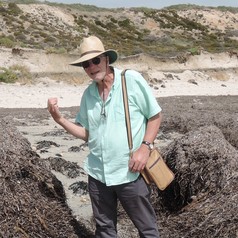
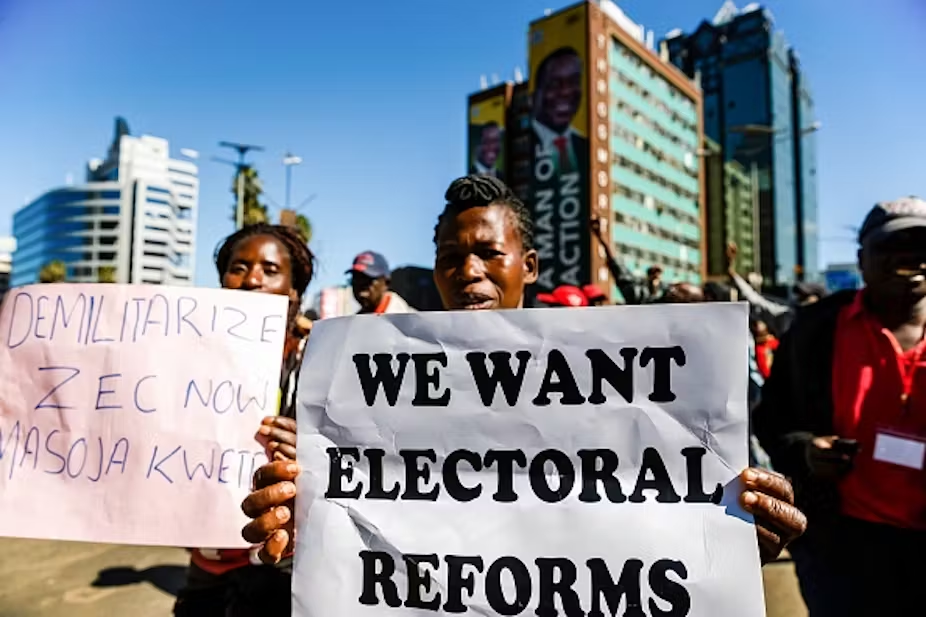
 Terrell Carver is Professor of Political Theory at the University of Bristol, UK. He has published widely on sex, gender, sexuality and masculinity/ies, and on Marx, Engels and Marxisms. His latest books are Marx in the ‘Classic Thinkers’ series for Polity Press (2018), and Masculinities, Gender and International Relations for Bristol University Press (2022).
Terrell Carver is Professor of Political Theory at the University of Bristol, UK. He has published widely on sex, gender, sexuality and masculinity/ies, and on Marx, Engels and Marxisms. His latest books are Marx in the ‘Classic Thinkers’ series for Polity Press (2018), and Masculinities, Gender and International Relations for Bristol University Press (2022).